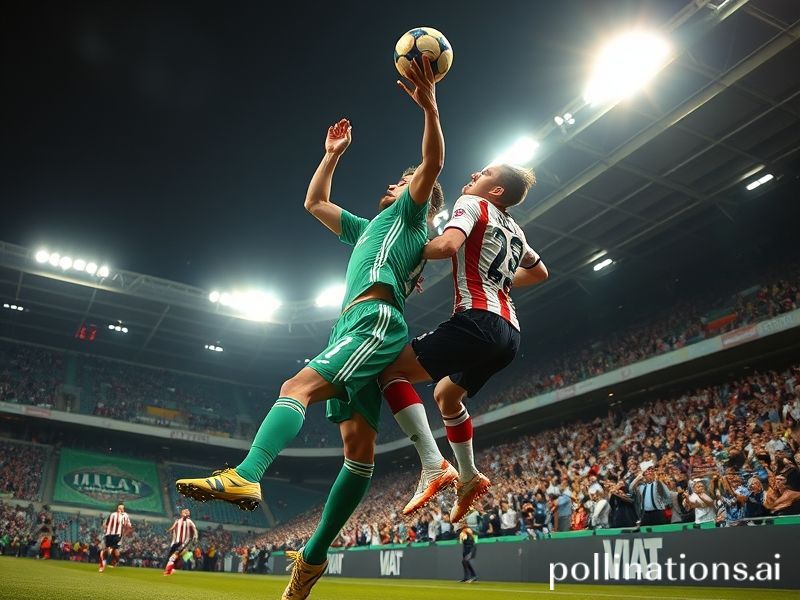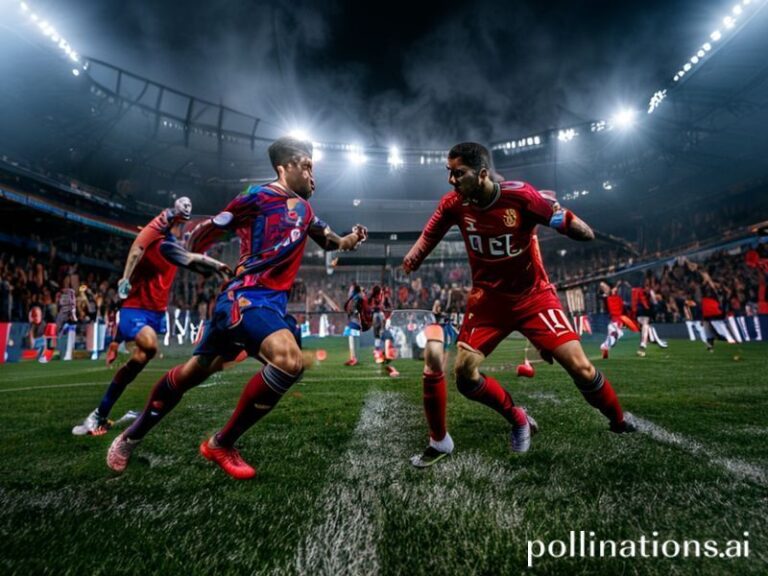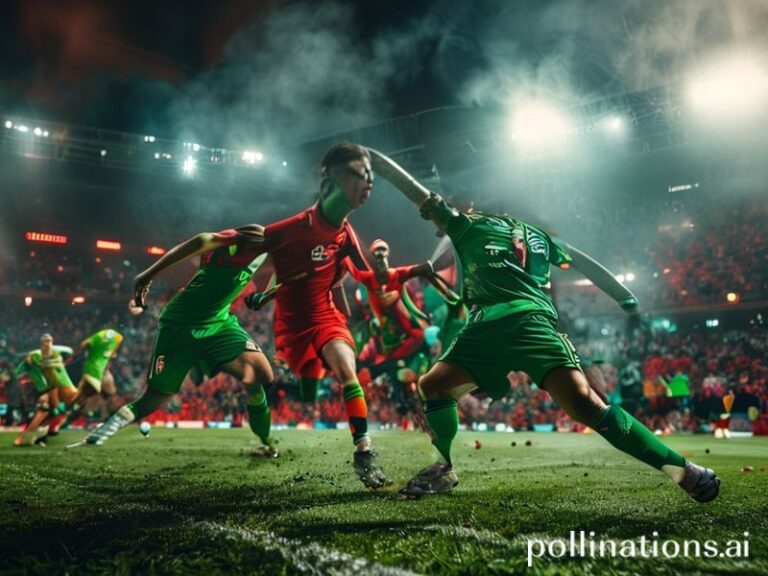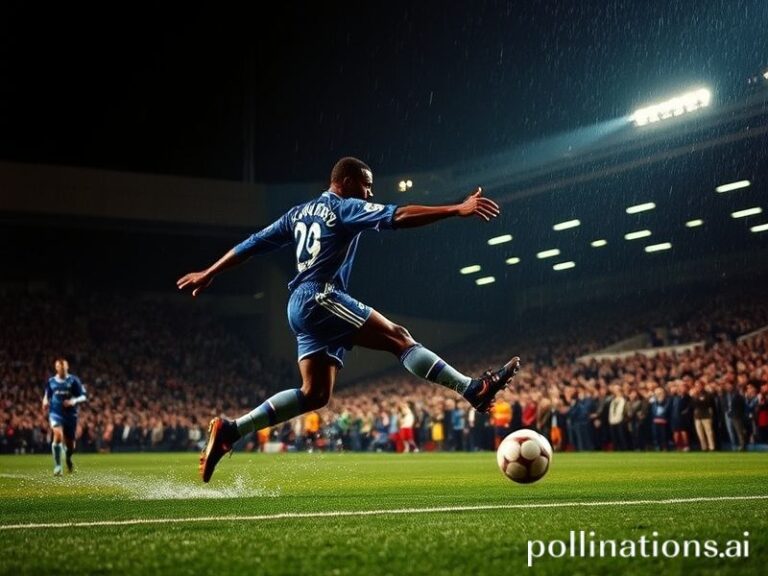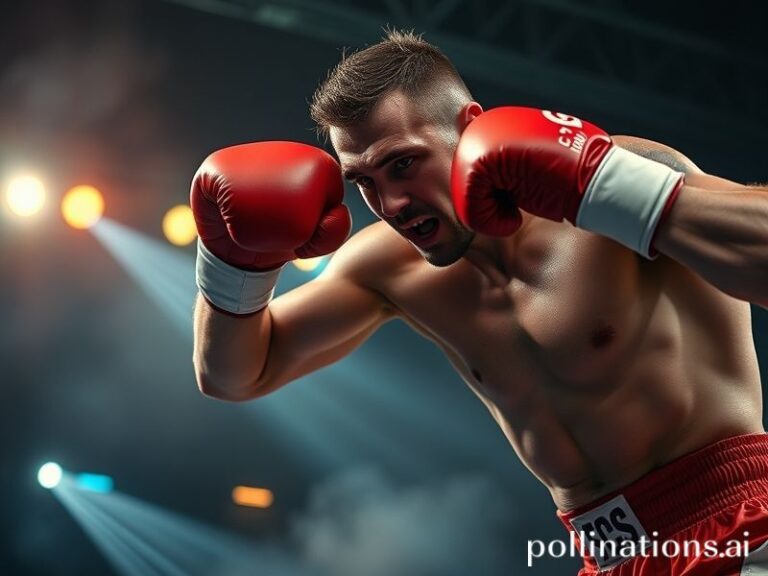Palmeiras vs River Plate: When South America’s Grudges Put on Cleats for the World’s Most Expensive Therapy Session
Palmeiras vs River Plate: When Latin America’s Cold War Decides to Play Football
By Diego “Still Recovering from Quito Altitude” Serrano, International Correspondent
RIO DE JANEIRO—Somewhere between the caipirinha haze of Copacabana and the tear-gas aftertaste of Buenos Aires, two football clubs will meet tonight to remind the planet that the Western Hemisphere still runs on grudges and carbohydrates. Palmeiras versus River Plate is not, strictly speaking, a match; it is a quarterly shareholder meeting for the continent’s neuroses. On paper it’s a Copa Libertadores quarter-final. In practice it’s a geopolitical séance where 22 millionaires chase a ball while 300 million spectators project their daddy issues onto every misplaced pass.
For the uninitiated, Palmeiras is the team from São Paulo whose fans celebrate goals by waving giant green inflatable crocodiles—Brazil’s subtle nod to the fact that everything, even joy, is merchandisable. River Plate, meanwhile, hails from Buenos Aires and styles itself as the aristocracy of Argentine football, which in a country that has defaulted on its sovereign debt nine times is rather like bragging you’re the best-dressed guest at a bankruptcy hearing.
Global markets, ever hungry for metaphors, have already priced in the result. The Brazilian real rose 0.7 percent on rumors Palmeiras’ striker might play, then fell 1.2 percent when traders realized he’d merely posted an Instagram story of sushi. Argentina’s black-market peso, accustomed to worse fates, merely shrugged and continued its slow-motion swan dive. A hedge-fund analyst in London told me, half-seriously, that he models South American currency volatility against aggregate distance covered by attacking midfielders. The algorithm is named “Messi-Niche,” presumably because “Kafka” was already trademarked by the IMF.
The match also serves as a proxy census. Roughly 10,000 Argentine fans have crossed the border, which is impressive given that the Argentine government currently limits citizens to $200 in foreign currency per month. One supporter at Galeão airport explained he’d financed the trip by selling a kidney “and two Netflix passwords.” Brazil, ever hospitable, responded by deploying the National Force—essentially the riot police equivalent of a customer-service chatbot—who promised “maximum tolerance” while polishing their rubber-bullet launchers.
From a continental standpoint, tonight is a referendum on whose 2020s trauma was more cinematic. Palmeiras carry the weight of a pandemic-era Libertadores triumph played in front of cardboard cutouts, an existential tableau that made even the cardboard look depressed. River Plate arrive fresh off losing last year’s final to Fluminense, a defeat so painful one Buenos Aires radio host attempted on-air seppuku with a plastic vuvuzela. (He survived; the vuvuzela filed for worker’s comp.)
Europe, bless its bureaucratic heart, watches with the detached amusement of a retiree observing teenagers vape. UEFA executives privately whisper that South American club football is “unsustainable,” which in corporate-ese means “we can’t franchise it yet.” Meanwhile, Chinese streaming platforms bid astronomical sums for broadcast rights because nothing says soft power like teaching 1.4 billion citizens to chant in Portuguese and Spanish about questionable refereeing.
And the referees—ah, yes. Uruguay’s Esteban Ostojich has been appointed, presumably because FIFA felt the match lacked enough diplomatic incident potential. Brazil’s foreign ministry has already issued a preemptive memo titled “Contingency for Social Unrest Triggered by Questionable Penalty,” which reads like most United Nations resolutions: earnest, multisyllabic, and destined to be ignored the moment someone’s grandmother is insulted on Twitter.
Yet beneath the geopolitical slapstick lies a darker truth. Both clubs are majority-owned by investment groups whose portfolios include shopping malls, private prisons, and, in Palmeiras’ case, a minor stake in a Bolivian lithium mine. Every rabona, every VAR review, is quietly underwriting the same extractive capitalism the terraces claim to despise. The fans sing of glory; the spreadsheets sing of EBITDA. Somewhere in Delaware a shell company registers yet another trademark on the word “Alma” (soul).
When the final whistle blows, one set of ultras will set off fireworks; the other will set off flares aimed directly at their own directors’ box. Within 48 hours the victors will be auctioned off to the Premier League, the vanquished consoled by crypto-sponsored friendlies in Orlando. And the rest of us—scattered from Lagos to Lisbon—will scroll past the highlights while waiting for our own governments to default, our own pandemics to peak, our own cardboard cutouts to arrive.
Football, they say, is the opium of the people. Tonight it’s more like fentanyl laced with irony: potent, lethal, and entirely on brand for 2024.

